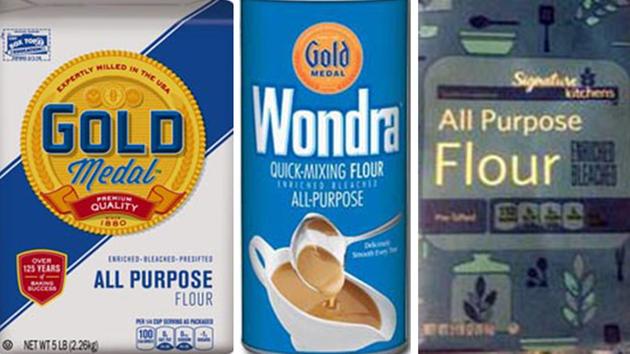-
Tips for becoming a good boxer - November 6, 2020
-
7 expert tips for making your hens night a memorable one - November 6, 2020
-
5 reasons to host your Christmas party on a cruise boat - November 6, 2020
-
What to do when you’re charged with a crime - November 6, 2020
-
Should you get one or multiple dogs? Here’s all you need to know - November 3, 2020
-
A Guide: How to Build Your Very Own Magic Mirror - February 14, 2019
-
Our Top Inspirational Baseball Stars - November 24, 2018
-
Five Tech Tools That Will Help You Turn Your Blog into a Business - November 24, 2018
-
How to Indulge on Vacation without Expanding Your Waist - November 9, 2018
-
5 Strategies for Businesses to Appeal to Today’s Increasingly Mobile-Crazed Customers - November 9, 2018
General Mills recalls flour over possible E. coli link
General Mills on Tuesday announced it has recalled about 10 million pounds of flour amid a health investigation over an E. coli outbreak.
Advertisement
While the recall is large, Gold Medal officials say the bacteria has not been found in its flour, nor has it heard directly from consumers claiming a connection.
The Minneapolis cereal company said the E.coli strain, called E.coli 0121, hasn’t been found in any of its flour products or its flour manufacturing plant.
Both state and federal authorities researched 38 cases of illnesses across 20 states related to E. coli 0121 between December 21 and May 3. About half of this group reported using a General Mills brand, a company spokesman said in a phone interview. President of General Mills Baking division Liz Nordlie said consumers should follow proper handling of flour when cooking or baking.
Stay on topic – This helps keep the thread focused on the discussion at hand.
The people who got sick may have consumed raw dough or batter, General Mills said in a statement.
According to General Mills, the recall affects the following retail flour products that could be now in stores or in consumers’ pantries. The recall includes nine different flour products, all from General Mills.
Food borne illness outbreaks linked to flour are extremely rare. Those with weakened immune systems, seniors and young children are most at risk.
Raw dough or batter should not be eaten – no matter how tempting. Bacteria is commonly found in flour at low levels because flour comes from milling wheat, something that is grown outdoors where bacteria are often present. Seattle food safety lawyer Bill Marler, widely regarded as an expert in the field, said the only other one he could recall was the 2009 recall of Nestle Toll House cookie dough, which was believed to be tied to the flour used to make the dough.
Advertisement
All surfaces, hands and utensils should be properly cleaned after contact with flour or dough.





























